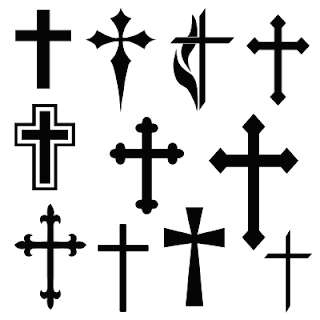
I have downloaded and read a number of really good books from
Google Book Search. These downloadable books are all in public domain and are free on the web for anyone interested in getting them. One book that I've downloaded is an 1857 publication of a number of Charles Hodge's articles that had been previously published in the Princeton Review. The book is titled
Essays and Reviews, it contains 18 articles and is 683 pages in length.
Dr. Hodge has been long admired as one of the great Reformed Theologians of the 19th Century. It was certainly a brilliant Christian theologian. The articles that I wish to mention here are not theological in nature, however since theology touches all of life, Hodge's theology does play an important part in how he sees the issues discussed.
Article XIV is titled "Slavery" and it is a reply William E. Channing’s 1836 book of the same name. I have read a good deal on slavery as it existed in the American South. I have read the ideas of rabid Abolitionists in the North and fanatical Southern Fire Eaters. Hodges article is, in my opinion, the best thing I've ever read on the subject from a truly biblical vantage point. Hodge stands on the biblically defendable middle ground between these two extreme positions.
In our day, the Abolitionists view is mostly taken for granted as an undeniable truth. But if the Scriptures of the Old and New Testament are correct than the Abolitionists must be wrong. Does this mean Southern Slavery was biblical are justified? NO.
The one fact (Abolitionists arguments are anti-biblical) does not lead to the conclusion that Southern slavery was just or biblically defensible and that is why Hodge’s is article is so good. He makes that point very clear and is a clear and strong supporter of the emancipation and freedom of slaves, but he does so on biblical grounds.
In Article XV Hodge’s essay is titled “Emancipation.” In this article he is responding to an essay by Robert J. Breckinridge, which appeared in the October, 1849 issue of the Princeton Review. This too is a very good and well thought out set of ideas. It is clear that Hodge, even at this point, still holds to the views that he had written in the earlier article on slavery.
In this essay he is arguing that, while slavery in and of itself is not necessarily sinful, if slaves are dealt with biblically as Christians should treat slavery, then such treatment must lead to the improvement on the slaves to the point where he/she must be emancipated out of slavery.
Dr. Breckinridge, a Presbyterian theologian of Kentucky, was a strong supporter of a change to the Kentucky Constitution that would lead to the freedom of Negro slaves in that state. Even though only 20% of Kentucky voters were slaveholders, the measure went down to overwhelming defeat.
Hodge wrote to explain how such a thing could happen and also to argue that emancipation for the slaves was inevitable, the only question was how it would come. Would it be by godly means as Breckinridge and others were trying to accomplish or would it be by other means.
He spends some time near the end of the essay discussing some of the more sinful laws that had been passed in the slaveholding states in the attempt to suppress and undermine the family structure of black slaves and other laws passed so as to keep the slaves in a state of ignorance.
Hodge speaks with the voice of a prophet at the end of this essay when he, “It is a national sin, as it must be committed by the people in their capacity as a commonwealth, and, therefore, will inevitably lead to national calamity. The history of the world is one continued proof that God visits the iniquities of the fathers on the children of the third and fourth generation of those who hate him… So sure, therefore, as a righteous God rules among the nations so certainly must the attempt to perpetuate slavery by keeping the slaves ignorant and degraded, work out a fearful retribution for those the descendents of those by whom such an attempt is made.”
In the article, despite his warning, it is clear that Hodge did not foresee the coming war between North and South. He believed that emancipation could still be accomplished by godly means, because there were many reasonable Christians in both North and South.
He was correct about there being reasonable Christians in both sections, but in North and South the hot heads carried the day we reaped the whirlwind and it affects as re still felt even to this day.
Coram Deo,
Kenith





















